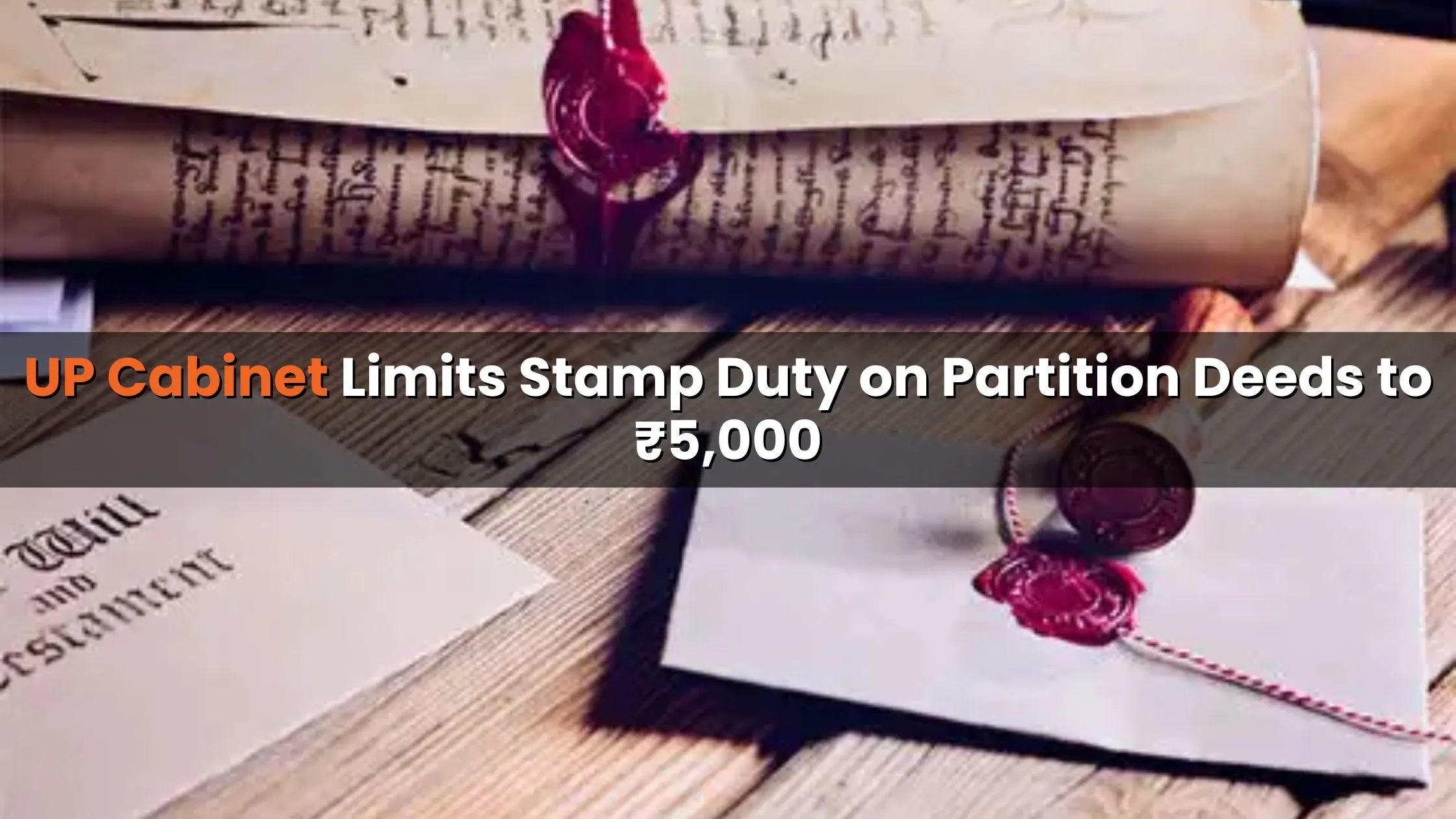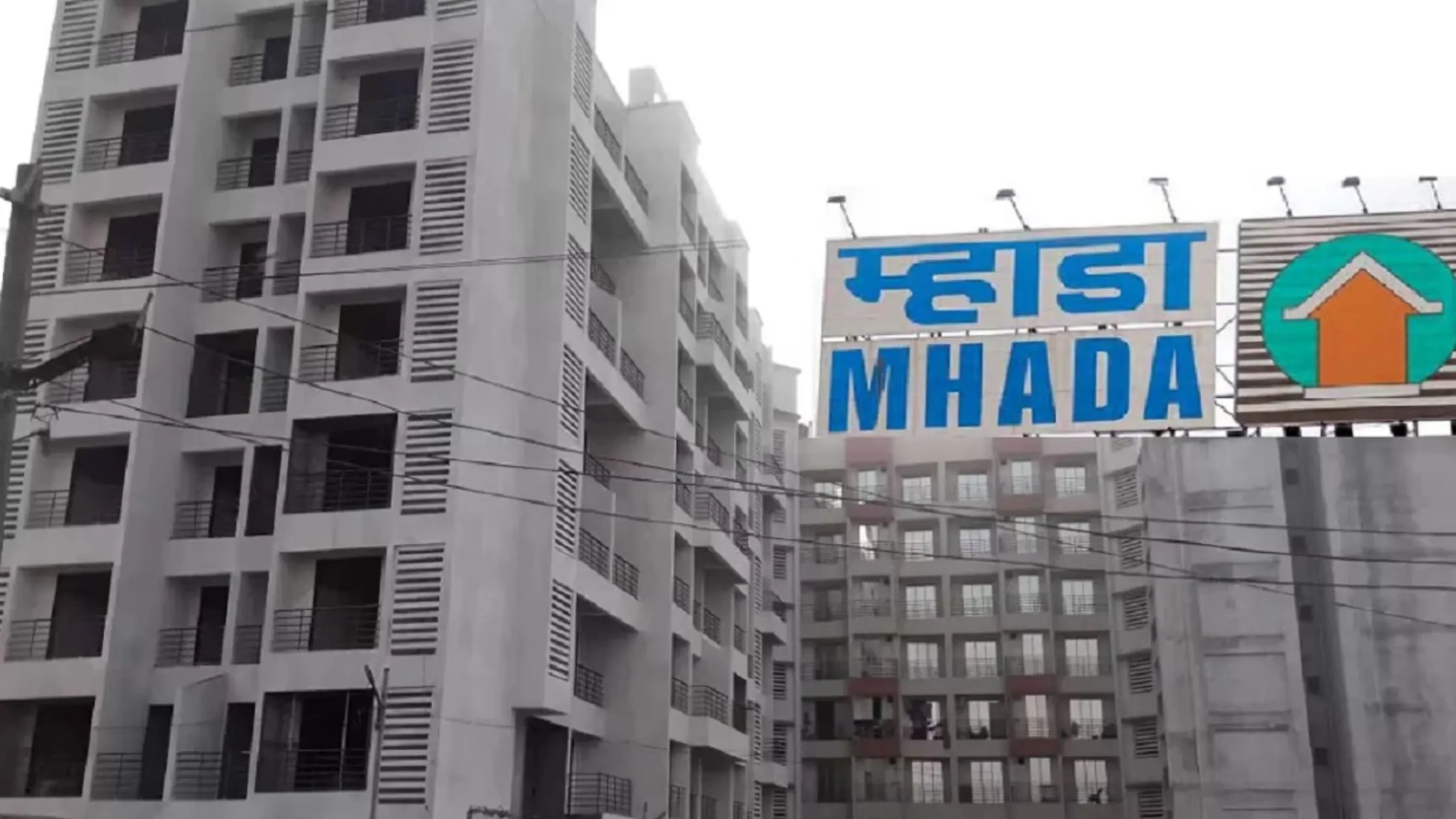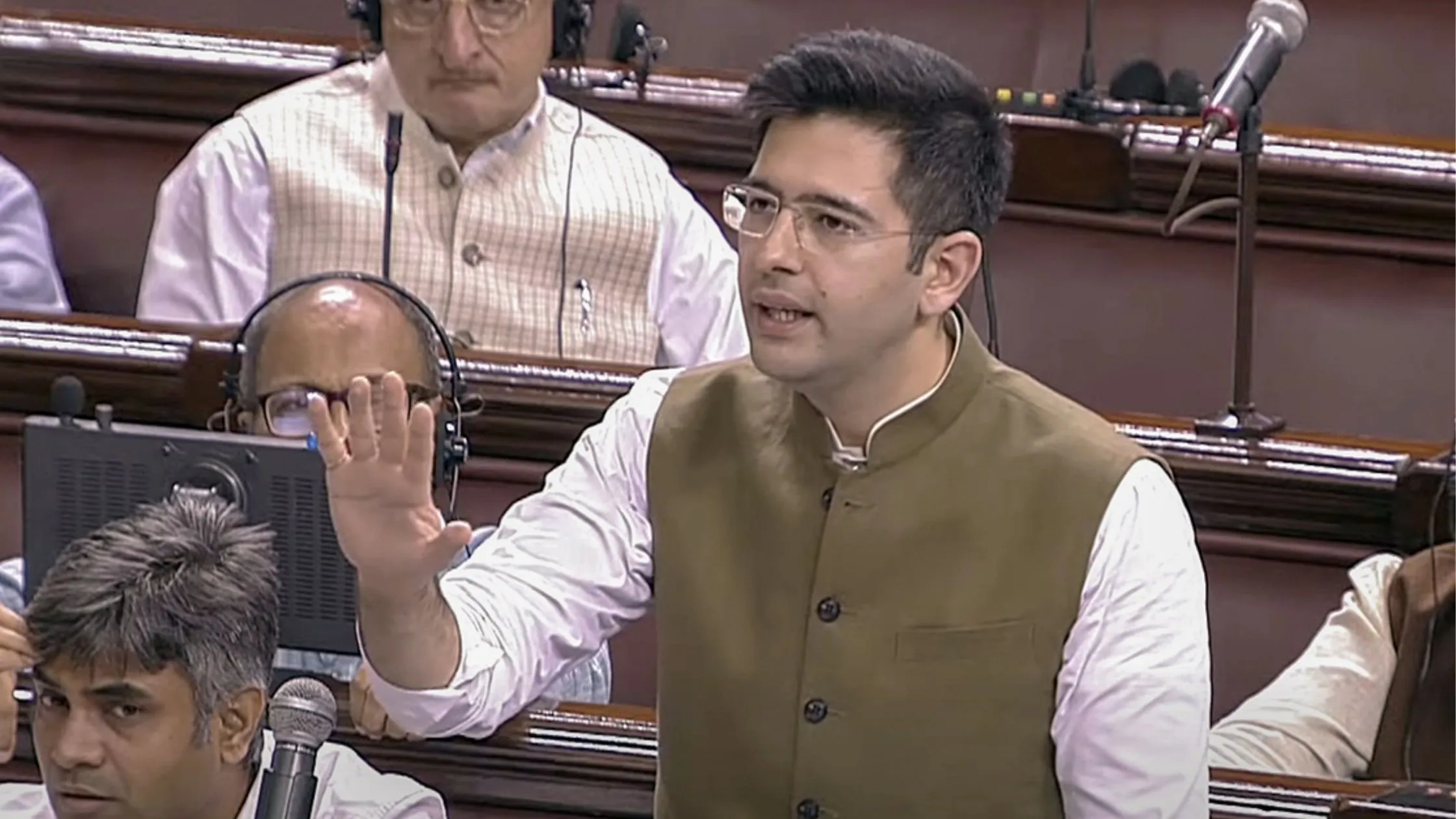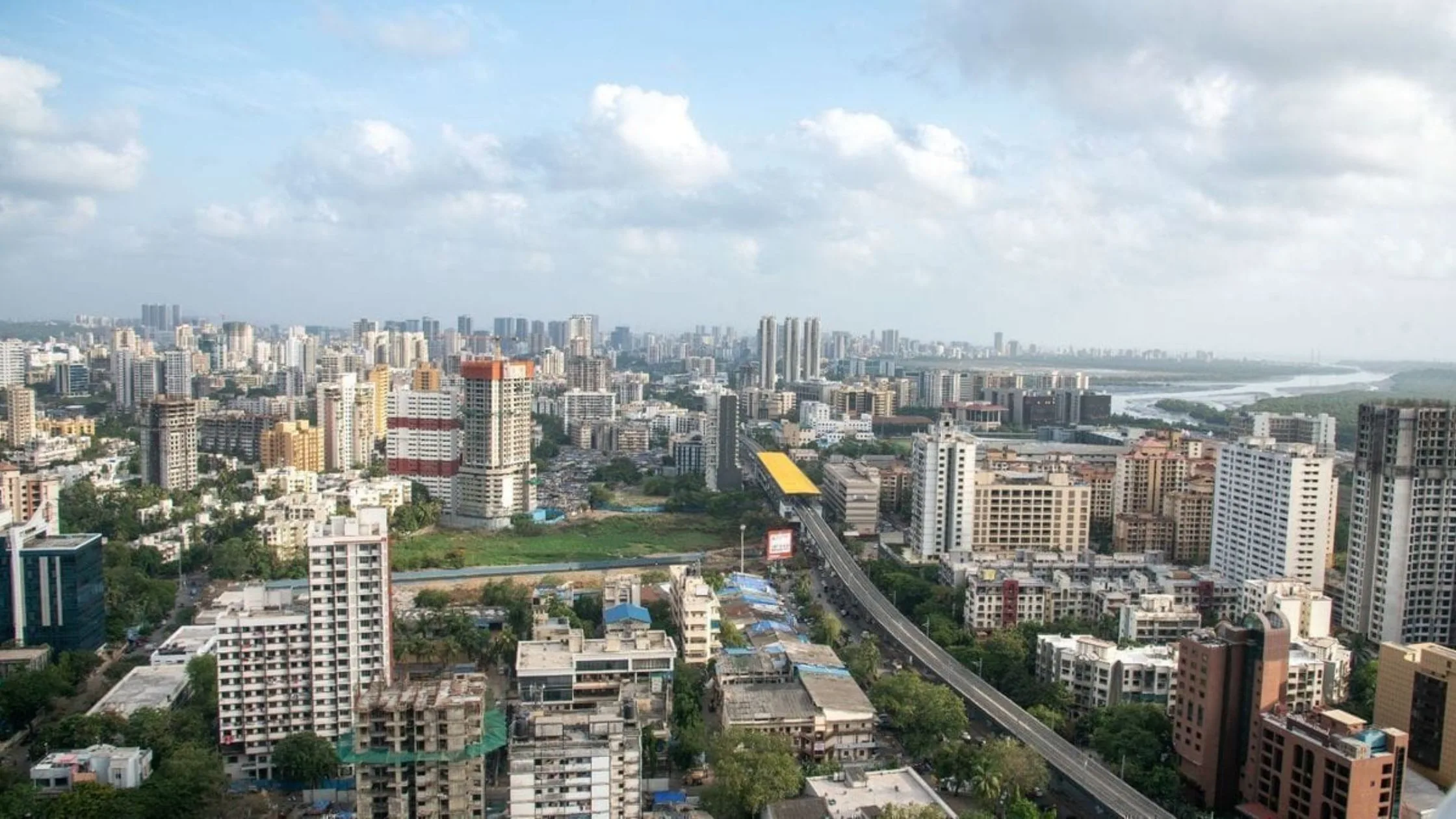Table of Content
▲
When it comes to family-owned property, one of the most common challenges is the partition of assets among heirs. Until now, the high cost of stamp duty and registration fees often discouraged families in Uttar Pradesh from officially registering partition deeds, leading to prolonged disputes in civil and revenue courts. In a major relief, the UP Cabinet caps stamp duty on property partition deeds at just ₹5,000. This landmark decision is expected to ease the financial burden on families, reduce litigation, and ensure smoother property transactions in the state.
Background of Property Partition Fees
Before this change, property partitions in Uttar Pradesh attracted a steep 4% stamp duty and an additional 1% registration fee on the property’s total value. For high-value assets, this meant a significant financial outgo, often running into lakhs of rupees.
Because of such costs, many families avoided registering their partition deeds legally. Instead, they relied on informal arrangements or verbal settlements, which later became a source of legal disputes. This not only clogged the civil and revenue courts with cases but also created uncertainty around property ownership and inheritance.
Also Read: UP CM Yogi Adityanath Seeks New Law to Replace 1860 Societies Registration Act
Details of the New Provision
The recent Cabinet decision has changed the way property partitions will be handled in Uttar Pradesh. Under the new rule:
- Maximum cap fixed at ₹5,000 for both stamp duty and registration fees.
- Applicable specifically to partition deeds executed among family members.
- The new framework applies regardless of the property’s market value, making it universally affordable.
By simplifying the process and cutting down costs, the UP Cabinet caps stamp duty on property partition deeds to ensure that more families come forward to legally register their documents.
Financial Impact on State Revenue
Naturally, any reduction in fees raises concerns about the impact on state revenue. Officials estimate an initial revenue loss of about ₹5.58 crore from stamp duty and ₹80.67 lakh from registration fees annually.
However, the government believes this will be offset by an increase in the number of registered deeds. As more families opt for legal registration, volumes are expected to rise significantly, eventually stabilizing or even boosting overall revenue.
This forward-looking approach demonstrates how a short-term loss can translate into long-term financial and social benefits.
Benefits for Families and Property Owners
The new provision is designed not only to reduce costs but also to address long-standing challenges in property inheritance. Here’s how families and property owners stand to benefit:
- Amicable settlements – Affordable registration allows families to formalize partitions without conflicts.
- Reduced litigation – Legal clarity means fewer disputes in civil and revenue courts.
- Updated land records – Registered deeds ensure accurate land and revenue documentation.
- Market availability – Properties with clear titles become easier to sell, mortgage, or transfer.
By capping fees, the UP Cabinet caps stamp duty on property partition deeds to empower families to secure legal ownership rights without worrying about prohibitive costs.
Comparisons with Other States
Uttar Pradesh is not the first state to implement such a reform. States like Tamil Nadu, Karnataka, Rajasthan, and Madhya Pradesh already have similar caps in place for partition deeds.
The results have been overwhelmingly positive higher volumes of deed registrations, reduced litigation, and improved clarity in property records. These examples gave the UP government confidence that its decision would work effectively on the ground.
By aligning with these progressive models, Uttar Pradesh strengthens its framework for property governance and family law.
Also Read: Millennials Fuel 30% Rise in Home Interior Spending Across Bengaluru, Mumbai, Pune
Broader Implications
The ripple effects of this decision extend beyond individual families. When the UP Cabinet caps stamp duty on property partition deeds, it impacts multiple facets of the economy and governance:
- Legal certainty – Registered deeds establish clear ownership, reducing fraudulent claims.
- Family harmony – Affordable settlements help prevent long-running disputes.
- Property market efficiency – With more registered properties, the market sees increased availability of clean-title assets.
- Administrative ease – Updating land and revenue records becomes smoother for state authorities.
Ultimately, the decision supports both social harmony and economic efficiency.
Conclusion
The decision by the UP Cabinet caps stamp duty on property partition deeds at ₹5,000 marks a progressive shift in property governance. By capping costs, the government has made it easier for families to settle property divisions legally, reduced the burden on courts, and created a pathway for cleaner land records.
While there may be an initial dip in state revenue, the expected surge in registrations is likely to balance the financial equation in the long run. More importantly, this move fosters family unity, legal certainty, and greater market transparency.
Uttar Pradesh now joins other states in showing that affordable, accessible property registration is a win-win for both families and the government.








Ans 1. The UP Cabinet has capped stamp duty and registration fees on property partition deeds at ₹5,000, making it more affordable for families to legally register property divisions.
Ans 2. The cap applies specifically to partition deeds executed among family members, regardless of the property’s market value.
Ans 3. Previously, stamp duty was 4% and registration fees 1% of the property value, which discouraged legal registration. Many families relied on informal arrangements, leading to disputes and court cases.
Ans 4. Officials estimate a short-term revenue loss of around ₹5.58 crore from stamp duty and ₹80.67 lakh from registration fees. However, increased deed registrations are expected to offset the initial loss over time.
Ans 5. Affordable registration encourages amicable settlements, reduces litigation, updates land records, and makes properties easier to sell, mortgage, or transfer.
Ans 6. States like Tamil Nadu, Karnataka, Rajasthan, and Madhya Pradesh already have similar caps. These states have seen higher registration volumes, reduced disputes, and clearer property records.
Ans 7. Besides helping families, it improves legal certainty, promotes family harmony, increases market efficiency, and simplifies administrative updates in land and revenue records.
Ans 8. The decision was approved by the UP Cabinet in 2025 and applies to all new partition deeds executed after the notification.
Ans 9. Yes, the ₹5,000 cap applies to all family property partitions, irrespective of whether the property is residential, commercial, or agricultural.
Ans 10. By registering partition deeds legally under the new cap, families secure clear ownership, prevent disputes, and contribute to a transparent property market.